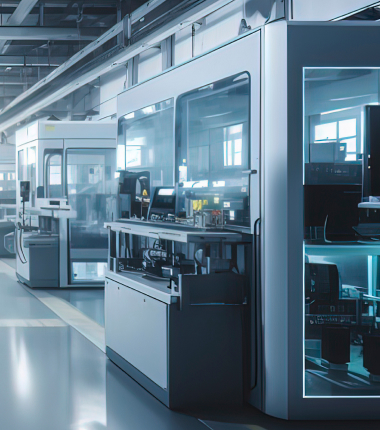Inkbit rapidly scaled up production of 3D-printed medical equipment during the pandemic.
NobleReach Emerge & Inkbit

- $44.8M Raised in venture funding
- 3D Printers delivered by new SBIR to the Air Force
- 50 New hires and factory size increased by 5x
The Challenge
Inkbit is an additive manufacturing company spun out of MIT that specializes in using machine vision for industrial applications. The company received a Small Business Innovation Research (SBIR) grant to expand the capabilities of modern additive manufacturing technologies, especially with regard to manipulating high-temperature and abrasive chemicals, and to do so in a way that could be scaled sustainably.
When the COVID-19 pandemic hit, Inkbit received an additional award from the Defense Advanced Research Projects Agency (DARPA) to produce 3D-printed vaccine vial stoppers and trachea/airway models to be used in training medical personnel. The challenge then became how to ramp up production quickly to meet the urgent needs of the pandemic response.
Entrepreneur Support
Inkbit brought on Matthew Munderville, a seasoned entrepreneur with expertise in strategy, commercialization, and business development for additive manufacturing businesses. Munderville identified first market penetration and:
Identified the most promising applications for Inkbit’s technology
Defined the business case and ROI for customers
Ran in-depth competitive and techno-economic market analyses to validate the commercial viability of Inkbit’s product
Conducted user interviews to gather feedback and shape product development
From there, Munderville helped to create a pipeline of prospective customers, culminating in a successful funding round where Inkbit raised $44.8 million in venture capital. This allowed Inkbit to increase the size of its factory five times over and hire 50 people. Additionally, Inkbit received a new SBIR to deliver its 3D printers to the Air Force in 2023 for on-site parts manufacturing.